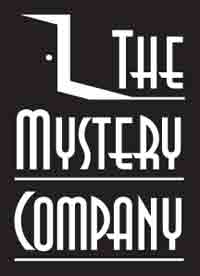Murder Is Academic by P.M. Carlson
Murder Is Academic by P.M. Carlson
Maggie Ryan, 1968
Vietnam, assassinations and riots. In the spring semester of 1968, a series of brutal attacks draws campus women together to study self-defense and the psychology of rape. Graduate student Mary Beth Nelson struggles to keep the Lords of Death at bay by immersing herself in researching Mayan languages. Her new housemate, Maggie Ryan, has her own secrets. When murder strikes close to home, Maggie investigates with a little help from her friends.
This Mystery Company edition restores to print the second novel in the Maggie Ryan series, a 1986 Anthony Award nominee.
Paperback | ISBN: 978-1-932325-23-2 | 2012
“Murder Is Academic treats violation of truth in tandem with assault and rape—true violations of person, mind, and body—and presents a cogent case for the inviolability both of persons and truth.” — The Armchair Detective
AVAILABLE IN PRINT FROM BOOKSELLERS EVERYWHERE.
ALSO AVAILABLE ON THESE EBOOK PLATFORMS:
READERS GROUP QUESTIONS FOR MURDER IS ACADEMIC
1. Chapter One of MURDER IS ACADEMIC begins with a murder scene from the murderer’s point of view, then shifts to a student’s (Mary Beth’s) point of view of a lecture on moral development and finally to Professor Freeman’s point of view on her struggle to get tenure. Do the different points of view illuminate the choices made by the characters? Does the university seem like an “Ivory Tower” separated from real problems?
2. In 1968, conflict was everywhere. The Vietnam war was raging, the newly-formed National Organization for Women was championing feminist causes, Bobby Kennedy and Martin Luther King were leading controversial rallies–– and both would be assassinated later that year. How does this atmosphere affect the graduate student women when someone from their university is murdered? Do you think the reaction would have been the same ten years earlier, in the 1950’s? How might the reaction be different today?
3. Jane Freeman is working for tenure, a difficult and important step for most professors. As she studies the language-related abilities that infants have before they begin to say words, what are some of the problems she encounters with her research? What problems does she face with her colleagues?
4. In the first chapter, Maggie deals humorously with a professor who can’t seem to end his lectures on time. Where else is time important in the plot? Where is it important to the development of the characters?
5. When they first meet, Mary Beth and Maggie have an immediate rapport that goes beyond Maggie’s interest in renting a room in Mary Beth’s house. Their bond is often tested. For example, Mary Beth notices that Maggie moves in with a large collection of drama books, but does not unpack them and refuses to attend plays. Later, when Mary Beth asks about it, Maggie lashes out at her. How does Mary Beth react to the attack? How does Maggie respond to her reaction?
6. Women Against Rape stresses pragmatic steps that women can take to avoid becoming victims. Forty years later, are the suggestions still useful? What would you add or subtract to the self-defense advice? To the police/?legal advice? Maggie contrasts a jury’s attitude toward rape victims in 1968 with its attitude toward robbery victims. Do such attitudes persist today?
7. Maggie seems ambivalent but decides to talk to her unexpectedly reencountered friend Nick O’Connor, Mary Beth notices the relief they both feel that the other seems to be coping well. A little later, at the picnic on the overlook, Mary Beth finds herself responding very personally to Nick’s account of his feelings after his wife’s death, although Mary Beth’s tragedy was very different. How does Nick’s story give hope to Mary Beth?
8. When her friend is murdered, Mary Beth is deeply upset. Why does she find this murder especially hard to deal with? Why do she and the other students find it difficult to believe?
9. When Maggie tells the pushy reporters that their house is the Eternal Light Commune, Mary Beth is impressed by the ease with which Nick joins into the deception and amplifies Maggie’s idea into a triumph. But Maggie seems dismayed by the successful joint improvisation. Why?
10. In Chapter One, the professor lectures about children’s judgment of “Which lie is worse?” and later a visiting professor is concerned with what motivates people to help others or to punish the guilty. Do you see some of these conflicts in the pragmatic moral choices the characters have to make? Do you agree with their choices?







